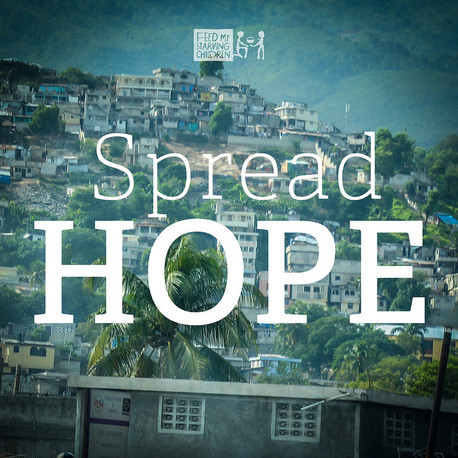|
Great news for our local infertility community!
Salt Lake City will be the home of the Utah Infertility Resource Center. I am heading up the clinical aspect of UIRC as the Clinical Director and I'm excited about what's in store. Join us for an opening night celebration and ribbon cutting event on Saturday, March 5th. UIRC has conducted a survey to better understand the needs of local Utahns experiencing infertility. We wanted to ensure that our services address the needs of our community. After reviewing the data I wrote up an article summarizing it. Read on to learn more about specific emotional aspects unique to Utah. Infertility in Utah: A Unique Experience Ashley and Jake both grew up in Utah, married young at age 23, graduated from college, began their careers and dreamed of a future with multiple children. A year after their wedding, they began trying to conceive. Month after heartbreaking month, the pregnancy tests were negative. Pregnancy announcements from friends and family started getting harder to celebrate. Reality began to set in, and with it came the realization that they would need to seek medical help in order to grow their family. Jake felt like less of a man due to infertility and didn’t share his experience with anyone. Ashley felt like less of a woman, because she had always imagined herself as a mother. She began to sink into a dark depression, feeling like she was losing sight of her lifelong dream of motherhood. Friends and family meant well, but a once exciting question now stung. When would they start a family? Four years, many invasive treatments, a failed adoption and thousands of dollars later, Ashley and Jake remain childless. Ashley and Jake’s story is not uncommon. They are among the 1 in 8 couples that struggle with infertility. Individuals in every corner of the world experience infertility, but A Utahn struggling with infertility is likely to experience some unique complicating factors. As with any experience, infertility is colored by a person’s culture, beliefs, community values, and the like. For example, a woman suffering from infertility in Manhattan may have different experiences, levels of support or feelings about infertility than those experiencing infertility here in Utah. Interestingly, close to 5% of all pregnancies in Utah result from some form of fertility treatment. The Centers for Disease Control recently released birth statistics from a number of states and Utah scored at the top of the list: a higher percentage of Utah residents receive fertility treatment than in the other states included in the study. How are Utahns experiencing infertility? Which emotional aspects are related to our local culture and which are not? One local nonprofit wanted to know more. The Utah Infertility Resource Center (UIRC), a newly-established non-profit dedicated to supporting those with infertility, has gathered data from local respondents by posting a survey among various infertility, parenting after infertility, and adoption online support groups. UIRC compiled the data from 152 respondents (97% of whom were women) which reviewed age, income, length of time trying to conceive, infertility treatments, symptoms of grief, depression, anxiety, and resources individuals relied on for support. Of the respondents 55% have children (the majority have one child) and 45% do not have children. Of those with children, 35% had children who were conceived with no medical intervention, 31% had children through IVF (In-Vitro Fertilization), 24% had adopted infants, 19% had children with the help of fertility medication, 10% had participated in foster care adoptions, and 7% had children resulting from IUI (Intrauterine Insemination). Almost half of those surveyed reported experiencing miscarriage, stillbirth or loss of child. The median time trying to conceive was three-four years. Interestingly, 85% of respondents reported that Utah’s family-focused culture influenced their infertility journey. Although respondents did not report specifically how it had impacted their experience, respondents may feel increased pressure to have a family or have a large family. The average age nationally of when a woman delivers her first child is 26. Utah’s average is slightly younger, 25.1. Woman aging into their 30s may feel “left behind” by peers or siblings. Utah also has the highest fertility rate in the nation, that is, 2.6 children for every one mother, meaning that Utah families are the largest in the country. Living in a state with these statistics and being the outlier undoubtedly has an emotional impact on couples who are experiencing infertility. It is also likely that couples are seeking fertility treatment earlier (in their 20s and 30s) whereas couples in larger metropolitan areas where the cultural expectations differ, are likely seeking fertility treatment later (40s). What Infertility Feels Like UIRC was interested to know how respondents experienced the emotional side of infertility. A common theme was isolation. Many respondents reported that they didn’t share their infertility diagnosis or treatment with anyone for the first several months. When they were diagnosed, one-third of respondents didn’t know anyone who had struggled with infertility; and half of respondents waited two years or more to reach out to others who were also suffering from infertility. Respondents reported their most common emotions as sadness followed by frustration, anger, emptiness, hopelessness, depression, fear and despair. The majority of respondents reported extreme anxiety. We know from broader studies that women experiencing infertility have significant levels of distress, equivalent to those facing life-threatening diseases such as cancer. Consider that 75% of local respondents reported that infertility was the most upsetting event of their life! Barriers to Treatment It is clear that the experience of infertility has an emotional impact on couples. UIRC was interested to explore barriers to creating a family. UIRC found some interesting trends, many of which are likely true of individuals across the country. Respondents reported cost as the most significant barrier to accessing infertility treatment. Infertility treatment is, for the most part, not covered by insurance, and couples are often left to cover the costs on their own. Local respondents with an average annual income of $60,000, reported spending an average of $10,000 to $15,000 on fertility treatments. The cost of treatment is a serious problem and impediment for most. Respondents reported feelings of grief and loss as the second largest barrier to infertility treatment. The emotional toll often leaves couples stifled, either unable to make a decision or emotionally overwhelmed by the options. Reaching out for Support Many respondents were unsure where to seek support services for infertility, such as support groups or individual counseling. More than half were interested in attending a support group, but weren’t aware of one in their area. And, although many had considered individual therapy, cost continued to be a barrier. Many couples found support in online fertility-focused support groups. Finding support for any emotional obstacle is useful but perhaps--and the research seems to suggest--seeking support concerning infertility could also improve pregnancy outcomes. A study completed by Alice D. Domar, a psychologist at Beth Israel Deaconess Medical Center in Boston and director of mind-body services at Boston IVF, concluded that women who were taught stress-reduction techniques, such as mindfulness-based meditation or cognitive restructuring, had improved outcomes related to conception. Dr. Domar notes “there’s something about practicing relaxation techniques or being with other women who understand what you’re going through, probably a combination of everything, that makes a difference. It isn’t just about relaxing.” Dr. Domar further explains that “in some cases her symptoms and prognosis improve” when “you treat a woman’s mind as well as her body.” Regardless, “almost without exception she feels better and can cope more effectively with her condition.” UIRC is using the foregoing and other data to develop programs to support those who experience infertility. These programs include support groups, sliding fee scale therapy, informational events, community awareness and advocacy. UIRC is excited to bridge the gap of services for those struggling to build their families. Utah couples like Ashley and Jake will now have greater access to education and support for the mental, emotional, and social effects of infertility. UIRC’s Opening Night Celebration on March 5, 2016 will introduce Utahns to local resources and support services for those experiencing infertility.
0 Comments
 The next round of my Infertility Support Group is starting February 16, 2016. I love this group, really love it, it's magical. I watch women instantly find a sisterhood among others who are dealing with infertility, women share their fears, hopes and vulnerabilities. I watch clients experience being heard, and understood. During the first session, I watch as strangers shake their head in agreement with one another as stories are shared. It's like having a mirror to validate your own experience, you see that you aren't crazy, you aren't a mess. These small groups of women build solid relationships, they keep in touch, and go on to attend one another's baby showers. I am so lucky that I get to create the space for all this to happen. Join us! Finding Peace: Infertility Support Group
Join a small group of women in discussion about the impact of infertility. Open to women on any part of the infertility journey including: considering treatment, fertility treatment, third-party reproduction and those moving towards adoption. We will utilize art therapy modalities, journaling, mind/body awareness, all in a supportive setting. Led by Whitney Barrell, LCSW therapist, with both personal and clinical expertise in infertility counseling.
When: Tuesday Evenings: February 16th-March 22nd 7:00-8:30pm Where: Whitney Barrell’s Office 1308s. 1700e. #209 SLC, Utah 84108 Why: Because it feels good to be in a group of women who "get” what you are dealing with. Investment: $220 Want to know what to expect? Read a journal entry from a woman in a previous group. ***Feel free to call with questions about the group, or to see if it would be a good fit for you. The Finding Peace Infertility group has just wrapped up it's first rotation. It was incredible. A group of five women who didn't know one another at the beginning of the 6 weeks formed honest, genuine, vulnerable relationships with one another. The group members shared their intimate thoughts, feelings of intense loss and were met with support and open arms.
Throughout the group participants journaled, used art therapy to create a visual representation of how infertility feels, their goals and accomplishments, and most importantly, found a space where they didn't feel alone. (Current group info here.) One of the journaling assignments was related to how infertility affects the relationship with ones spouse. I requested that the group write a letter to their spouse about how infertility has impacted them. And, one participant blew us away, a wicked smart women full of love and compassion shared her letter, and there wasn't a dry eye in the room. So, in honor of Infertility Awareness Week, and with her permission, I'd love to share her letter with you. Maybe you can relate. A letter to my husband, Infertility has beat me up. It has drawn blood and left me battered and bruised. When I was younger I had a plan that I was going to be married and starting a family by 23. It was always something that I wanted but never happened, and you know I'd never settle. When I married you at 30 I thought it was finally my turn. You know I wanted kids right away, but I had to wait- we needed to finish law school, then we needed to move, take the bar, get jobs, get better jobs. By the time we said "fuck it" and gave up trying to be ready, I thought again, this is finally it. Month after month, year after year, disappointment set in. After the miscarriage in December, it happened. I lost hope. I am defeated, broken, sad. I know you must feel something too, but when you try to comfort me by agreeing that infertility sucks or that you know how I feel- I am surprised. I feel as if I am telling a friend my woes and I expect sympathy, but not understanding. I often times forget you are on this journey with me. I don't know if that is because you don't often share your feelings on the subject because I am so consumed with mine, or that I don't listen. I want to though, I want to listen to you and be excited about the future with you. I want us to be the "Spokane us." We were broke, unemployed, childless, and without a clue to what we would do next, but we were happy, and in love, and excited about possibilities. I think more than anything I want, I need, action. I am so sick of saying everything and doing nothing. Let's do our frozen transfer, let's adopt, let's move, let's change careers or take the bar again. I don't want to wait anymore. I want to live the very precious lives we've been given. Life is so short and I don't want to spend it waiting. I want to LIVE IT with you. I want to TRY with you. I love you. -- Infertility is complex; not just the medical side of treating infertility, but the emotional side of treating it. Essentially, infertility, whether it's the inability to conceive, frequent miscarriages or otherwise, is loss.
Many couples are surprised by the intensity of their feelings related to infertility. Perhaps this is because grief related to infertility is disenfranchised grief, or grief that is not acknowledged by society. For example, the loss of a pet, loss of a home and loss of a family member by suicide are all forms of disenfranchised grief. This type of grief is often unaccompanied by cultural standards for how to provide support. We know what to do when a loved one passes away, we know what to do when someone is sick, but the loss related to infertility is more obtuse and complex. Most of us don’t know how to support someone experiencing it. This can make friends and family feel helpless or anxious; and rather than attempting to provide support we may avoid the subject. In my work with couples experiencing infertility, a few themes have risen to the top in helping them cope: Acknowledge the loss Just as society as a whole doesn’t acknowledge infertility grief, both women and men struggle individually to acknowledge that their feelings of sadness and loss are legitimate. Infertility takes away one's ability to plan how or when their family is built — a loss of control over one's body. Sometimes it's the loss of a genetic link to our children, or the loss of the experience of pregnancy. Loss manifests as irritability, sadness, anger, frustration, anxiety and many other emotions. When couples acknowledge that they are experiencing a crisis in their relationship, or a disconnect in how they envisioned their life together, they can begin to understand their feelings and cope with them in healthy ways. Acknowledge loss, then start again Unfortunately, infertility is a long cycle of hope and loss — hope in a late period, hope in a medical procedure, hope in an adoption match. Just as there is hope in the events, there is also loss. These events typically follow in lock-step, and often couples don’t have the time or emotional energy to grieve one before another hits. Although the experience of loss is highly individual, research by Elizabeth Kubler-Ross outlines stages of grief. Many experience denial, anger, bargaining, depression and acceptance. It’s more common for us to experience these emotions in a non-linear way. One day we may feel some acceptance, the next, back to anger and bargaining. Rather than chastising ourselves for feeling angry, accept that at this time, it’s useful to feel the emotion rather than fight it off. Create space By creating space, I mean creating emotional space. Give yourself space, time and acceptance to feel your feelings. Grief isn’t a race; there’s no finish line. There isn’t a right way or wrong way to work through it. Rather than placing rules and expectations on how you should feel, or for how long, allow yourself the space to grieve. This piece can’t be underestimated. Just as you allow for your own grieving, do the same for your partner. Acknowledge that he might not grieve the same way you do. He might not cry or talk about it like you want to. She might not cry, rather preferring to look forward and be optimistic. Some find it useful to create a ritual or tangible event to mark the loss. Others use their creative side to sculpt, paint or create something that is a visual manifestation of their feelings. Seek support Identify the friends and family who understand the intensity of your emotions. If you sense they don’t know how to support you, give them some suggestions. Reach out to others experiencing infertility throughsupport groups or online forums. Feeling understood and supported is paramount to coping. Infertility can be isolating, being in contact with those who “just get it” cuts down on the need for you to explain your feelings or provide background. Find a group of women or men who understand the loss associated with infertility who can accompany you on the road towards healing. Welcome! Don't want to take the time and cognitive skill to read Debunking Adoption Myths? (Me neither!) Now you've got the option to put me in your ears! I was invited to speak with Kelly Ellison on her podcast, Your adoption Coach, to discuss the myths of adoption. Join a small group of women in discussion about the impact of infertility. Open to women on any part of the fertility journey including, fertility treatment or third-party reproduction and those moving towards adoption. Led by Whitney Barrell, LCSW therapist, with both personal and clinical expertise in infertility counseling.
When: Wednesdays March 18th-April 22nd 2015 (6 week group) 8:00-9:00 pm Where: Whitney Barrell’s Office 1308s. 1700e. #209 SLC, Utah 84108 Why: Because it feels good to be in a group of women who “get” what you are dealing with. Investment: $120 ***Feel free to call with questions about the group, or to see if it would be a good fit for you. Let me save you some time and "googling" and share this comprehensive list complied by Jay of Fertility Authority and the two week wait blog. Below is a list of grants, clinical trials, scholarships, foundations, even contests of some sort all dedicated to the financial barrier that exists in infertility. As always, do your due diligence in researching the ins and outs of each.
Clinical Trials: www.clinicaltrials.gov. You can search for free fertility treatment in your area that you may qualify for. On my second IVF, I did a clinical trial and found out about it through the clinic I was seeing. If you don’t want to go the website, you can ask your current doctor if they are participating in any you might qualify for. The Tinina Q. Cade Foundation’s Family Building Grant: http://www.cadefoundation.org. They are accepting applicants NOW for the 2016 $10,000 grant so you can fill out a form here: http://www.cadefoundation.org/?page_id=10 Baby Quest: http://babyquestfoundation.org/ The AGC Hope Scholarship:http://www.agcscholarships.org/about-agc/ Fertile Dreams – The Embracing Hope Grant: http://www.fertile-dreams.org B.U.M.P.S.: http://www.yourbump.org/ The Heart to Heart Video Contest:https://hearttoheartcontest.com/ The International Council on Infertility Information Dissemination (INCID): http://www.inciid.org Parenthood for Me: http://www.parenthoodforme.org/ Sparkles of Life: http://www.sparklesoflife.org/ The Angels of Hope Foundation:http://www.angelsofhopeinc.org/creatingMiraclesGrant.htm The Sharing Hope Financial Assistance Program:http://www.livestrong.org/we-can-help/fertility-services/fertility-resource-guide/ Verna’s Purse: http://www.reprotech.com/financial-assistance.html?faqitem=faq31 Lost Stark Foundation: http://loststorkfoundation.org/ Last year you were sitting in the same spot in your home, looking at your tree and thinking to yourself, maybe next year I’ll be sitting here holding a baby. But, then the year goes by and it’s Christmas again and your arms are heavy with the sadness that only infertility can bring.
The holidays are child-centric. Thanksgiving, Hanukkah and Christmas engender images of rosy-cheeked children with their families. Because of this, it can be a difficult time for those of us trying to conceive. It can feel lonely. It can feel sad and isolating, in particular when there is an unsaid expectation that this is “the most wonderful time of the year.” The questions you know they’ll ask Holidays can be tricky with family members. Infertility is rarely understood by those who don’t experience it. Everyone has a version of great-aunt Sue who always asks “when are you going to give your parents some grandchildren?” If you haven’t discussed your infertility with family members you are bound to get some of these questions. This doesn’t mean that you are required to let your family know the details of every last test you’ve undergone. But, it is useful to have a response ready such as “that’s something were looking forward to in the future” or “it’s not as easy for everyone to get pregnant as you may think. We are working on building our family with the help of a reproductive endocrinologist.” Likewise, you aren’t required to share information with family members if you aren’t comfortable, discussing with your partner what you’d like to share and with whom may be helpful. New traditions, and opting out of old ones You may consider getting out of town or doing something alone with just your partner. If it’s painful to go to your sister's house and watch your nieces and nephews open presents, don’t do it. You could suggest just arriving for brunch or dinner. Before the event occurs picture yourself at the family party and feel it out: Does it feel forced? Are you holding back tears? Give yourself the gift of permission and self-acceptance this year. If it’s painful to try to carry on like nothing is wrong, don’t do it. Gratitude and service Remember the reason for the season. Although cliche, it does change our perspectives when we are able to provide service or time to someone who needs it. Infertility is all-encompassing and it’s easy to feel enveloped in grief. Consider spending some time with an aged relative or volunteering in your community. Not only will it help others, but it will also provide you with the realization that although you are struggling to build your family, you have a house over your head, food and access to health care. If you are passionate about infertility and have an interest in advocacy, Resolve, a national infertility organization, is often seeking volunteers. Give yourself a break, you are grieving This one is most important. All of the clients I see need to be reminded that perhaps they don’t feel as happy as they used to or don’t have that sparkle in their eyes because they are grieving. Infertility isn’t seen, you can’t point to a broken arm and say “this is why I’m upset,” but it’s there. You are grieving the loss of a dream. You are grieving the idea that your life would be a certain way. Many of my clients say that they always imaged themselves a parents and with infertility it’s out of your control. No matter how hard you work at it, how much you want it, those things don’t calculate like they might when you’ve worked toward other goals. This is frustrating and makes us feel helpless and beaten down. Now is the time to practice good self-care, to be aware that you might not have the emotional strength to hold it together like you normally can. That’s OK, that’s honest. Be kind to yourself. Lastly, the holidays will eventually come to an end. The best thing you can do is be prepared, know what your limits are and set a calendar in place that honors where you are emotionally this year. And somehow, hold onto hope for next. A comprehensive list of support groups, therapists, resources and fundraising options for those experiencing infertility. All complied by Utah Fertility Center.
SupportGroups Peer-led Support Groups offer informal opportunities for women and men experiencing infertility to connect with one another, to discuss their situations and to receive support from others who have had similar experiences or who are struggling with similar issues. Group moderators are volunteers and are not mental health professionals. Attendance is free. Please contact the group host before attending your first meeting. Hill Air Force Base -General Infertility Support Group* Host: Rachel Thompson – [email protected] *Open to anyone with base access Logan -Childfree Support Group Location: Logan, UT Host: Sylvia- [email protected] Provo/Orem General Infertility Support Group Host: Kassandra [email protected] before attending your first meeting. For more information about RESOLVE Support Groups, please contact Betsy Campbell at [email protected]. In an effort to help raise awareness, to encourage discussion, and to provide an opportunity to share tangible ways to deal with infertility, ldsinfertility.org sponsors small support groups. • These support groups are offered at no charge to women who would like to attend (in the future, we may open support groups just for men). • The support groups are casual in nature, so feel free to dress casually. • Usually, a support group will last no longer than 1 1/2 hours, but will be based on the needs of the group. Cedar City, Utah Contact: Dawn-Marie, [email protected], 435-590-9491, ldsinfertility.blogspot.com Lehi, Utah Contact: Misti Sudweeks at [email protected] Ogden, Utah–(Support Group not run directly through LDSinfertility.org) http://www.conceivablehope.com Orem, Utah Contact: Kelsey Redd, [email protected] or 360-536-5710 Salt Lake City, Utah Contact: Camille Hawkins, [email protected], 801-971-5358 RESOURCES Utah Infertility Awareness, Seeds of Hope, is a non-profit (501c3) group of community advocates trying to raise awareness of couples affected by infertility. Our goal is to share hope, insight, and seek resolution. Additionally, we would like to offer support and encouragement. For upcoming events [email protected] Footsteps for Fertility Foundation was founded to raise infertility awareness, provide grants for fertility treatments, and organize fundraising events. Footsteps for Fertility Foundation organizes 5 Kilometer races that will be held annually with the goal of promoting infertility awareness and educating couples about how to get grants and affordable treatment options for in vitro fertilization, frozen embryo transfers and intrauterine insemination. footstepsforfertility.org Pound the Pavement for Parenthood is a non-profit organization established in 2010. We are a group of dedicated men and women committed to helping the cause of infertility. We bring awareness to the struggle and help raise precious funds for those ready to start expensive processes including adoption and In-Vitro Fertilization. We are a unique organization focused on people. We are in this only to help other people find hope, healing, and happiness while realizing their dream of becoming parents. Our goals include raising money, but our focus is raising awareness and support for those who struggle with infertility. We feel lucky to be a part of the infertility community and hope that you can find friends and comfort knowing that you are not alone in this and that there is a network of people who know the struggle and who are here to help you through it. www.poundthepavementforparenthood.com INFERTILITY COUNSELING AND THIRD PARTY COUNSELING The Healing Group- “Offering Hope, Growth and Healing through Therapy and Education.” [email protected]; www.thehealinggroup.com 801-461-9060 Wasatch Family Therapy-Marriage and Infertility Counseling Marriage therapy or couples counseling is designed to help you work through relationship or communication problems and create emotional closeness.http://www.wasatchfamilytherapy.com/about-us (801) 944-4555 Whitney Barrell Counseling If you’ve experienced infertility for any length of time, you’ve likely felt a loss of control, anger, confusion and perhaps the highest of highs and the lowest of lows. I have both personal and clinical experience with infertility and it’s emotional implications. Together, we can make difficult decisions about treatment options, provide a safe space to work through the changes in your relationships that have been impacted by infertility. And, most importantly honor and explore the grief and loss of not having things go the way you expected. Whitney Barrell, LCSW 684 e Vine Street Murray, Utah 84107 801.502.5644 : www.whitneybarrellcounseling.com Laura Czajkowski, PhD U of U hospital University Neuropsychiatric Institute Phone: 801-583-2500 Marilyn Snell, PhD Counseling Center Phone: 801-501-8444 Brandon Yabko, PhD Center For Human Potential Phone 801-483-2447 HELPFULLINKS www.sart.com Society of Assisted Reproductive Technology www.asrm.com American Society of Reproductive Medicine www.theafa.org The American Fertility Association www.fertilehope.org Fertile Hope for Woman www.integramed.com Specialty Health Services www.attainfertility.com Infertility Education Support and Information www.fertilitylifelines.com Making treatment affordable One of the best parts of life is traveling through it with friends. You may attend school together, start your first jobs at the same time, then transition into adulthood, which may mean marriage and children. Infertility is often a divergent path for some friendships, but it doesn't have to be.
Many women who are experiencing infertility watch as their friends become pregnant and experience childbirth. An event that is life-changing is now a topic of conversation that may become “sticky” among friendships. Just like most personal events, it’s difficult to understand infertility if you haven’t lived it. People understand things like cancer better. Interestingly, studies completed by Dr. Alice Domar suggest those experiencing infertility have the same levels of stress as those recently diagnosed with cancer. Regardless, the pain of infertility is largely misunderstood and at times not taken seriously. Those experiencing infertility often hear “don’t worry it will happen, maybe if you just relax.” Being relaxed has no correlation with conception. Here are a few things to think about if someone you care about is experiencing infertility. Don't minimize. Infertility is the death of a dream. Many couples imagine and plan for their family well in advance. When it starts to become clear that this may not be a reality, they feel a loss of control, disappointment in one's body, and anger.Reproduction is often viewed as a basic human task, not being able to do what, on a most basic level, our bodies are “meant” to do, can be quite devastating. Many of us ascribe to the idea that if we work hard for something we will achieve it; infertility flies in the face of this concept. In particular, during "child-bearing years," couples may feel they have jumped through the hoops of education, employment and financial stability only to find that a family (created in the traditional way) isn't easily attainable. Your friends are facing a loss of something they always thought would be there. It can't be underestimated. Rely on other friends or family to discuss your pregnancy. If you are expecting and an infertile friend is not, share your joys and complaints with other friends or family. Although it is sad you aren't able to share such a rite of passage with a friend, you'll save your friendship if you rely on other parts of your support network during this time. For someone trying to conceive, the birth of a child may too much to talk about and be reminded of. They won't feel this way forever, just honor the time that they do. Show them you care. Do what you would do if someone had a newly diagnosed condition, which could mean casseroles, cards, flowers, long lunches with a listening ear. This isn't anything different. Let them know that you want to be supportive. Ask them, “Do you want me to ask about how things are going, or wait until you share it?” Some feel that infertility is a private matter, others seek support. Lastly, if you or a loved one is experiencing infertility, Resolve, a national infertility association, can be an excellent resource. Find information about family-building, the emotions of infertility and information on peer-lead support groups. Go to resolve.org, and hang in there. P.S. When this article was first published on KSL, some women that commented noted that they did want to be informed of and involved in a friends pregnancy. Obviously this varies from person to person. If you are dealing with infertility and you know a friend is trying to conceive, you may consider having a conversation about how you would like to be informed of her pregnancy. Do you want to be alone, or by phone. It's a good idea to know your limits and pregnancy announcements are often very difficult to hear when you are trying to conceive, protect your heart and do what will work for you. |
Archives
March 2024
Categories
All
|







 RSS Feed
RSS Feed